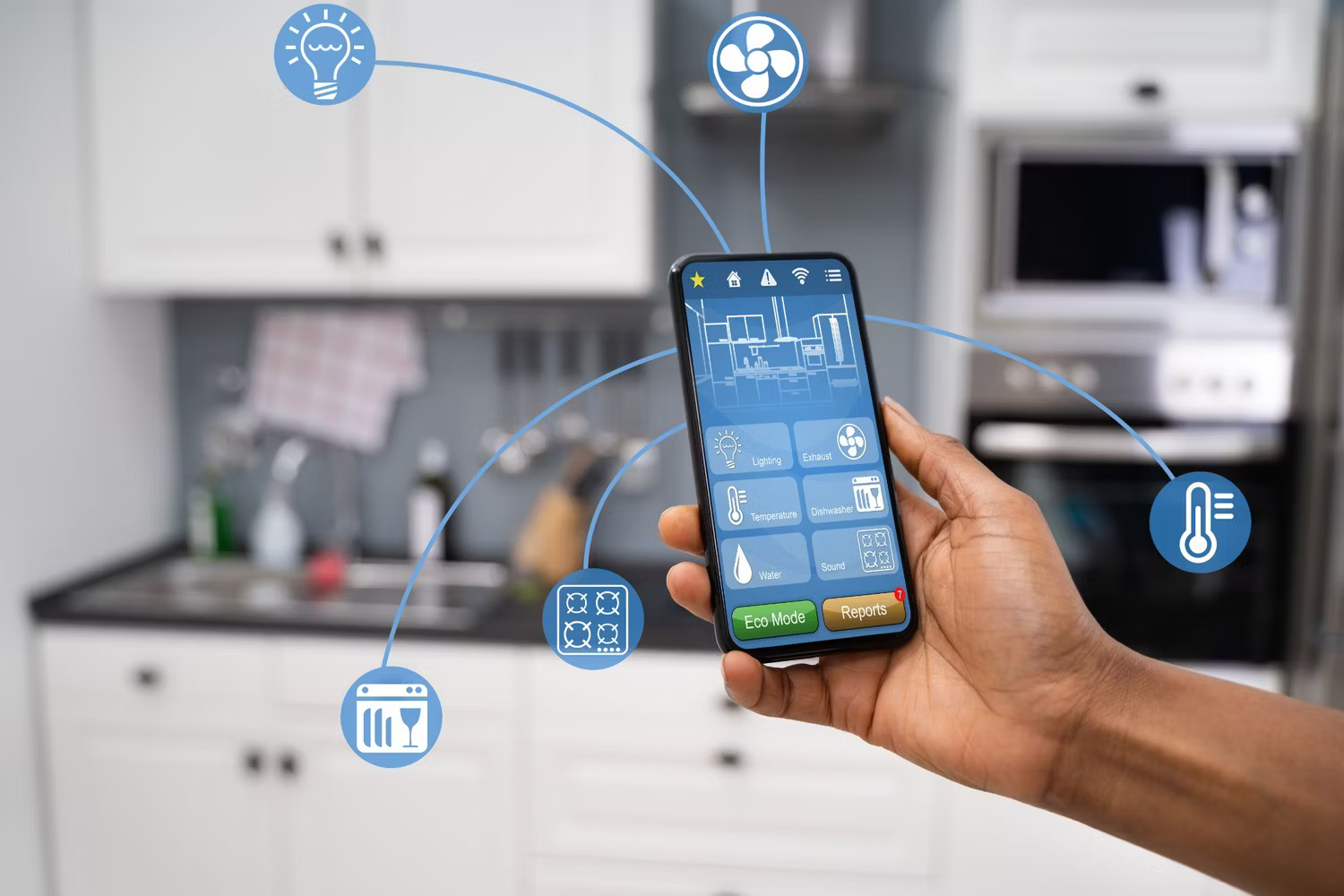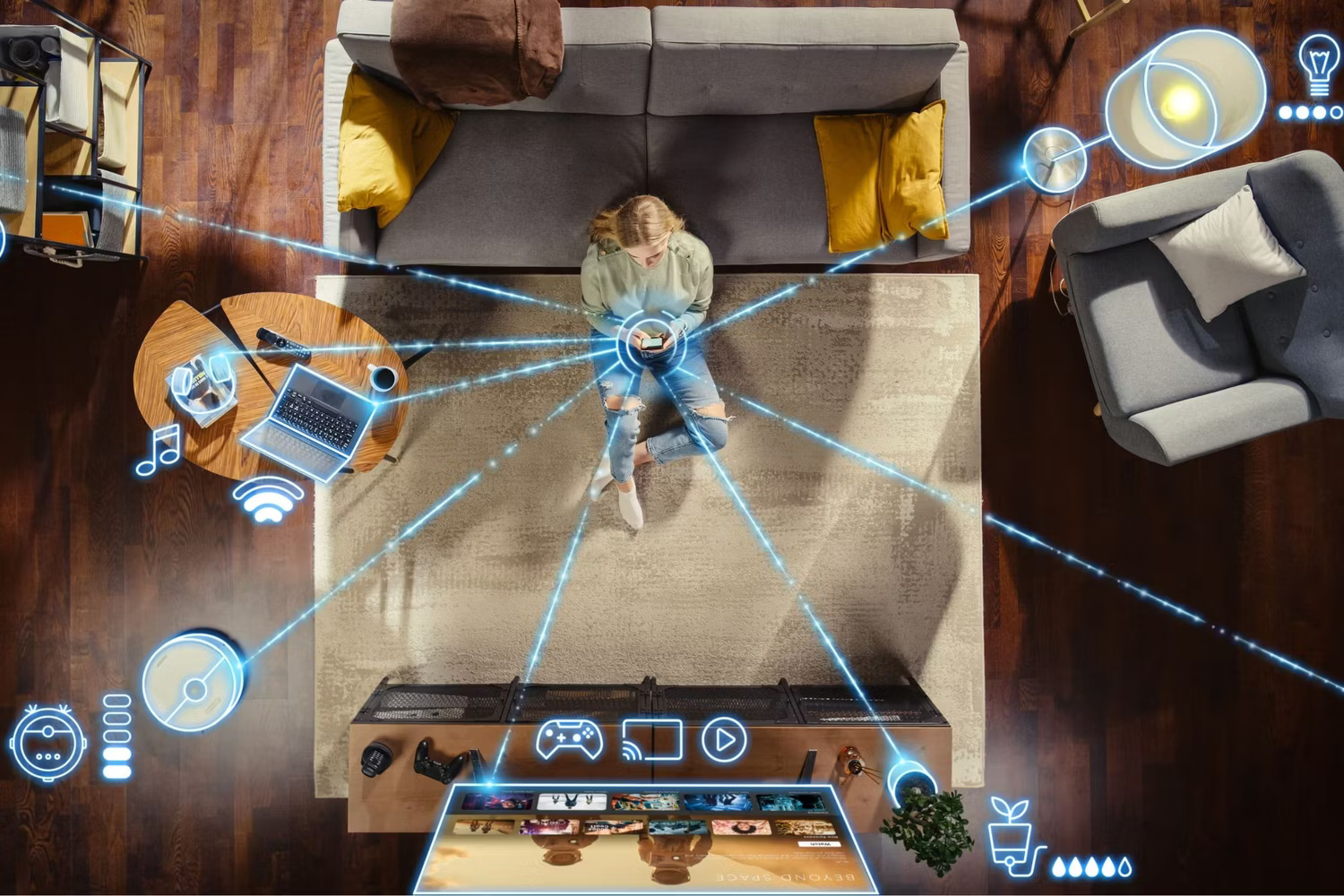Why Generative AI Shouldn't Be in Smart Home Devices?
Imagine devices that can predict your needs, create personalized settings, and even talk to you. It all sounds exciting, but many people aren't entirely convinced by the idea of Generative AI taking over their homes. Here's why!
1. Over-AIing everything

AI is creeping into spaces it doesn't really belong in. Sure, there's no denying what AI can do in certain contexts. Automated scheduling tools, voice assistants, and smart thermostats are genuinely useful.
There's a fine line between useful and too much, and we're starting to cross it. The more AI gets involved, the less human the home becomes. Instead of the home being a cozy, private space, it's starting to feel like a high-tech showroom where AI runs the show.
2. Privacy concerns
One of the biggest reasons many people are hesitant about the advent of Generative AI in smart home devices is privacy. Smart home devices already know a lot about us — when we wake up, what temperature we like in our homes, and even when we're not there. Adding AI to the mix increases the ability to collect and process even more data. And where does all that data go? Who has access to it?
The thought of personal habits being analyzed to generate appropriate responses or actions makes many people uncomfortable, especially with the number of data breaches and privacy issues that have been in the news.
3. Overcomplicating simple tasks

Another concern is that generative AI can overcomplicate what should be simple tasks. It's nice to have your smart vacuum know when and where to clean. But do you really need it to bother you with constant status updates or unsolicited advice on how to keep your floors clean?
We're faced with unnecessary smart home devices. Adding generative AI risks making even necessary devices cumbersome to use instead of easier. Sometimes you just want things to work without having to engage in digital dialog or navigate a complex set of options.
4. Loss of human contact
What makes a home truly home? It's the little human touches—the things that are personal, imperfect, and full of personality. It's worrying that Generative AI, with its automated suggestions and pre-programmed responses, could start to replace the human interactions and decisions that make your space unique.
Imagine you walk into your kitchen and your smart fridge suggests a recipe based on what's inside (not what you want). It might sound nice at first, but after a while it might start to feel less like a help and more like a replacement for real human connection.
5. Potential depends on technology

There's also the risk of humans becoming too reliant on AI to make everyday decisions. It's easy to see how this could happen – if your smart home starts making suggestions or even making decisions for you, you'll want to let it take over more and more. But where do you draw the line?
You don't want to lose the ability to make decisions for yourself or become too dependent on a machine that doesn't understand the nuances of your life. What happens when the AI gets it wrong or the system crashes? In those situations, it makes more sense to keep your autonomy intact.
It's important to ask ourselves whether we really need Generative AI in our smart home devices. While the idea of a home that adapts to our every whim may sound appealing, the reality is that it could come at the expense of privacy, human connection, and autonomy. The potential risks far outweigh the benefits. Many people want to keep their homes a little less 'smart' and a lot more human.